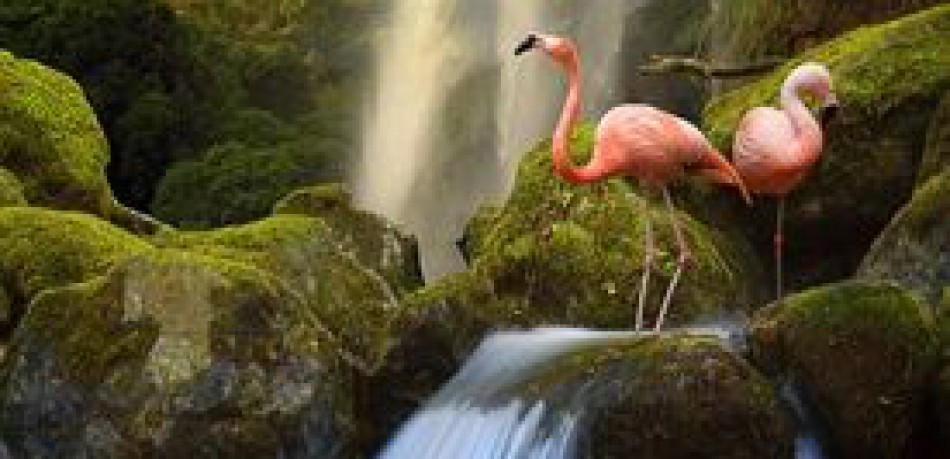What is The Elders?
— The Elders.org
The Elders are independent global leaders, brought together by Nelson Mandela, who offer their collective influence and experience to support peace building, help address major causes of human suffering and promote the shared interests of humanity.
Chaired by Kofi Annan, The Elders is an independent group of global leaders who work together for peace and human rights. They were brought together in 2007 by Nelson Mandela.
Archbishop Desmond Tutu served for six years as Chair before stepping down in May 2013, and remains an Honorary Elder.
The Burmese pro-democracy leader Aung San Suu Kyi was also an Honorary Elder, until her election to the Burmese parliament in April 2012.
What makes an Elder?
Elders no longer hold public office; they are independent of any national government or other vested interest. They should have earned international trust, demonstrated integrity and built a reputation for inclusive, progressive leadership.
The Elders share a common commitment to peace and universal human rights, but they also bring with them a wealth of diverse expertise and experience:
The peace makers, with decades of experience mediating and resolving conflicts around the world.
- The peace builders who have helped post-conflict societies to heal wounds and rebuild.
- The social revolutionaries who transformed their own countries – whether by reducing poverty, improving the status of women, or championing nonviolent struggle.
- The pioneering women who have governed their countries, led international institutions and spearheaded movements to empower women.
An Elder is also a changemaker – someone who can lead by example, creating positive social change and inspiring others to do the same.
How was the group formed?
The concept originates from a conversation between the entrepreneur Richard Branson and the musician Peter Gabriel. The idea they discussed was simple: many communities look to their elders for guidance, or to help resolve disputes. In an increasingly interdependent world – a ‘global village’ – could a small, dedicated group of individuals use their collective experience and influence to help tackle some of the most pressing problems facing the world today?
Richard Branson and Peter Gabriel took their idea of a group of ‘global elders’ to Nelson Mandela, who agreed to support it. With the help of Graça Machel and Desmond Tutu, Mandela set about bringing the Elders together and formally launched the group in Johannesburg, July 2007.
What do The Elders stand for?
The Elders represent an independent voice, not bound by the interests of any nation, government or institution.
They are committed to promoting the shared interests of humanity, and the universal human rights we all share.
They believe that in any conflict, it is important to listen to everyone – no matter how unpalatable or unpopular this may be.
They aim to act boldly, speaking difficult truths and tackling taboos.
They don’t claim to have all the answers, and stress that every individual can make a difference and create positive change in their society.
How do they work?
The Elders is an unusual organisation with a distinct way of working. The Elders work strategically, focusing on areas where they are uniquely placed to make a difference.
This can mean engaging in private advocacy, using their collective influence to open doors and gain access to decision-makers. At other times, The Elders work publicly to promote neglected issues and speak out against injustice. The group decides collectively where there is the greatest opportunity to make a real impact, whether this is:
Opening doors to gain access to decision-makers at the highest levels
Listening to everyone, no matter how unpalatable or unpopular, to promote dialogue
Providing an independent voice that can speak out, challenge injustice and break taboos
Bringing people together to catalyse action and forge alliances
Amplifying and supporting the work of people affected by conflict or working for peace
Creating space for campaigners and policy makers to broach difficult issues
Connecting people with decision-makers, ensuring the needs of ordinary citizens are always represented
Highlighting neglected issues to generate media coverage and political attention
The Elders are cautious not to claim all the credit for making a difference. Much of The Elders’ work is dedicated to supporting the efforts of other campaigners and advocates, giving them a platform to make their voices heard. Read blogs by some of the activists The Elders have worked with.
The Elders are supported by a small team based in London, and by the Advisory Council.
How do The Elders decide what action to take?
The Elders are in regular contact with each other, and meet twice a year to review their activities, discuss current priorities and plan their upcoming work.
Identifying situations where the Elders’ involvement can make a positive impact, and where they – as Elders – are uniquely placed to act, often means making difficult decisions. The group isn’t always able to intervene in particular conflicts or prevent cases of human rights abuse. These decisions are always made by consensus and new areas of work are only adopted with the agreement of the group.
How can I support The Elders’ work?
While The Elders is not a typical campaigning or fundraising organisation, we still encourage you to get involved in making the world a better place.
The Elders believe very strongly in the idea that everybody can be a make a difference – The Elders themselves embody the notion that everyone is capable of achieving change in their own way.
For the young Lakhdar Brahimi, this meant taking up arms in Algeria’s liberation struggle; for the ‘gentle revolutionary’ Ela Bhatt, it was a nonviolent, grassroots approach to women’s empowerment. Read more of The Elders’ personal stories of change.
Kofi Annan says, ‘I am often asked what can people do to become a good global citizen? I reply that it begins in your own community.’

 Nelson Mandela
Nelson Mandela Jimmy Carter
Jimmy Carter